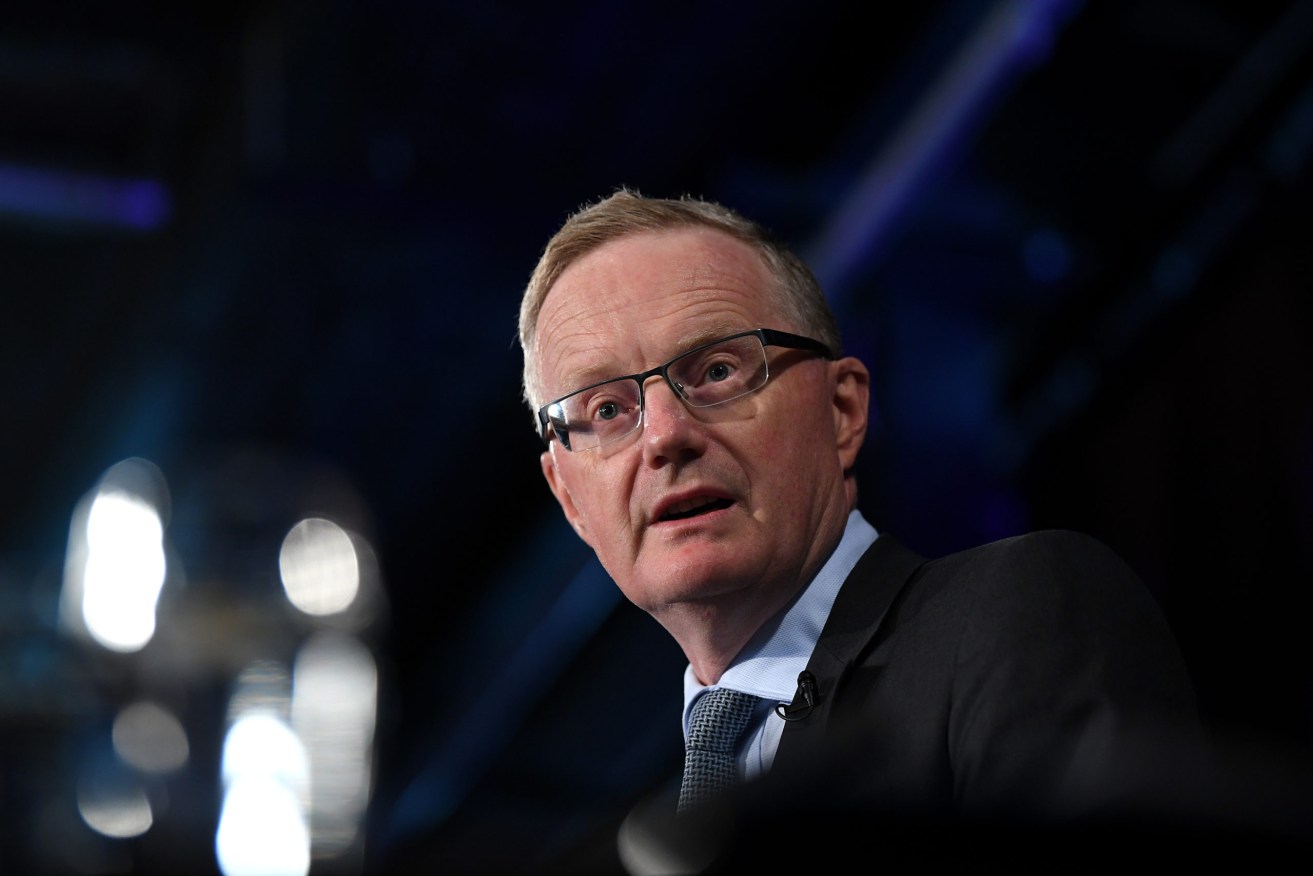Upbeat Reserve Bank pivots and puts faith in the economy being down but not out
The Reserve Bank will continue to buy bonds at a rate of $4 billion a week until February as it pumped optimism back into the markets claiming that the COVID-19 outbreaks in southern states would delay, not derail the economy.


Reserve Bank Governor Philip Lowe. (Photo: AAP Image/Joel Carrett)
But RBA Governor Philip Lowe said the economy would “materially decline” in the September quarter and unemployment would increase in coming months but the economy was expected to be growing again in the December quarter and back on its pre-COVID path by the middle of next year.
Its expectation of growth in the December quarter means it is not expecting a technical recession.
The central bank had been expected to continue spending up to $5 billion a week until November through its quantitative easing program because of the weakness in the economy caused by the NSW and Victorian lockdowns, so the reduction in the weekly amount, as well as the extension until February, will be a surprise to money markets.
“This setback to the economic expansion is expected to be only temporary,” RBA Governor Philip Lowe said.
“The Delta outbreak is expected to delay, but not derail, the recovery.
“As vaccination rates increase further and restrictions are eased, the economy should bounce back. There is, however, uncertainty about the timing and pace of this bounce-back and it is likely to be slower than that earlier in the year.
“In our central scenario, the economy will be growing again in the December quarter and is expected to be back around its pre-Delta path in the second half of next year.”
He said inflation was still nowhere near where the bank wanted it and wages and prices were subdued and the conditions for a rise in the cash rate were not likely to be met until 2024.
“Very accommodative financial conditions will continue to support the recovery of the Australian economy. Borrowing rates are at record lows, sovereign bond yields are at very low levels and the exchange rate has depreciated over recent months,” Lowe said.
“The fiscal responses by the Australian Government and the state and territory governments are also providing welcome assistance in supporting household and business balance sheets.
“The board’s decision to extend the bond purchases at $4 billion a week until at least February 2022 reflects the delay in the economic recovery and the increased uncertainty associated with the Delta outbreak.
“The board will continue to review the bond purchase program in light of economic conditions and the health situation, and their implications for the expected progress towards full employment and the inflation target.
“These bond purchases, together with the low level of the cash rate, the yield target and the funding that has been provided under the Term Funding Facility, are providing substantial and ongoing support to the Australian economy.
“The Board is committed to maintaining highly supportive monetary conditions to achieve a return to full employment in Australia and inflation consistent with the target.
“It will not increase the cash rate until actual inflation is sustainably within the 2 to 3 per cent target range.
“The central scenario for the economy is that this condition will not be met before 2024. Meeting this condition will require the labour market to be tight enough to generate wages growth that is materially higher than it is currently.












